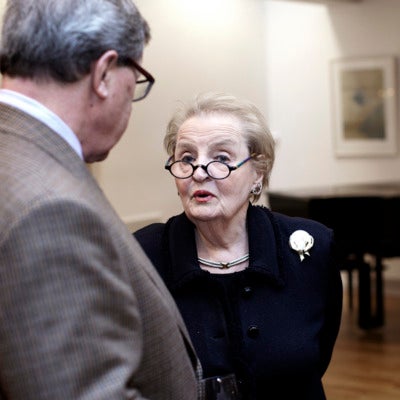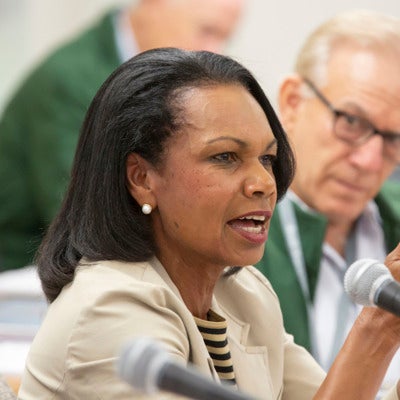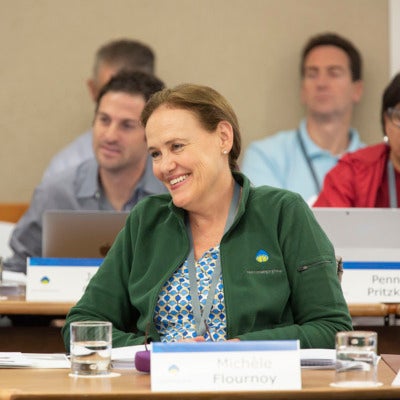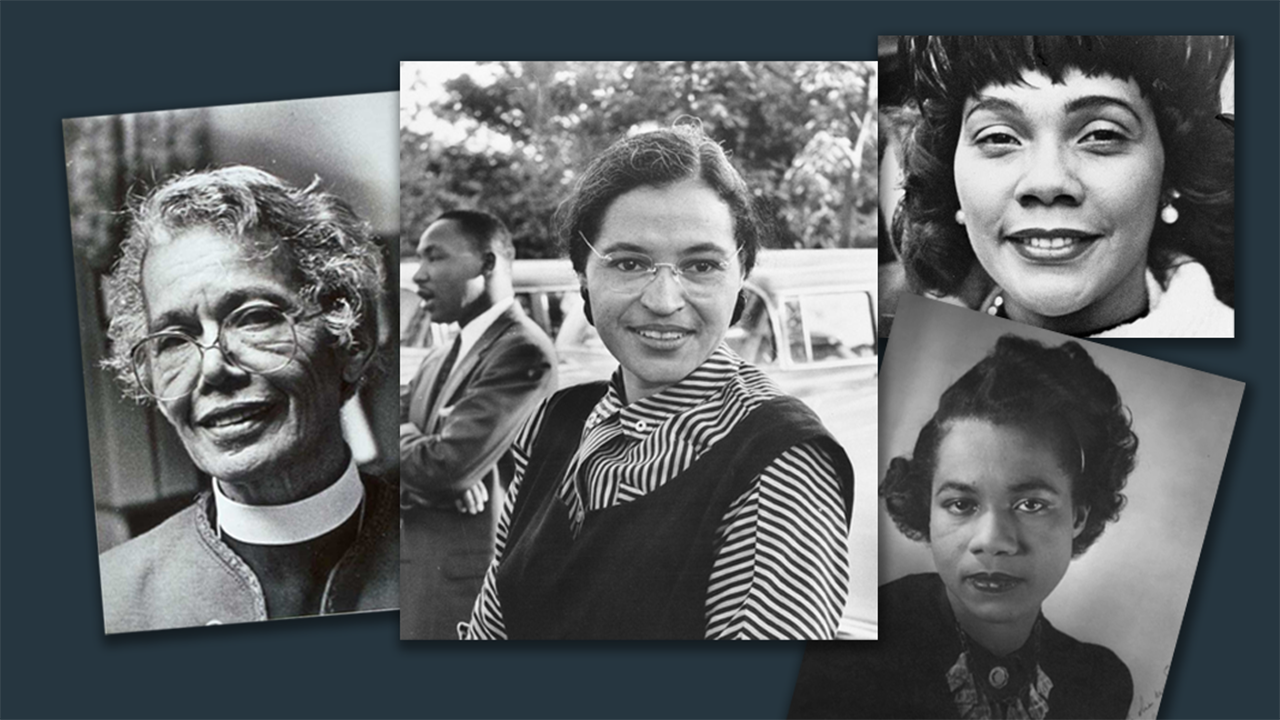This March, in recognition of Women’s History Month, President Biden called on Americans to “pay tribute to the trailblazers from the recent and distant past for daring to envision a future for which no past precedent existed, and for building a Nation of endless possibilities for all of its women and girls.”
We are heeding that call. Women and girls have achieved many of those possibilities by becoming leaders in academia, industry, civil society, and politics—rising to heights previously barred to their gender. The Aspen Strategy Group is proud to count many of these women leaders among its ranks. This month, we celebrate three of our members who made history by shattering the glass ceiling in the foreign policy and national security realms. Here’s to these women and those who will follow in their footsteps.
Madeleine Albright

In 1997, Madeleine Albright became the first woman US Secretary of State. During her tenure from 1997-2001, she shaped US foreign policy and responded to crises in the Balkans, East Africa, and the Middle East. Dr. Albright reflected on her role as a woman in government in the Aspen Ministers Forum and “Leadership in Action” series created in partnership with the Bertelsmann Foundation. “There is the assumption,” she said, “as you’re sitting with the only woman with a group of men, that women don’t know how to lead.” During her time as Secretary and since, Dr. Albright has proved that assumption wrong time and time again. From advocating for NATO intervention in Kosovo to chairing the National Democratic Institute to founding the Aspen Ministers Forum, Madeleine Albright serves as an inspiration for millions of young girls around the world aspiring to become Madam Secretary.
Condoleezza Rice
Condoleezza Rice  served as the first woman US National Security Advisor. From 2001-2005, Dr. Rice advised President George W. Bush as the United States responded to the 9/11 attacks, SARS, and global terrorism. In President Bush’s second term, Dr. Rice became the second woman Secretary of State and the first female African American Secretary of State. Through her work, she has supported women around the globe. Speaking at the 2020 Aspen Security Forum, Dr. Rice recounted a time she encouraged another country to repeal discriminatory laws. “Lesotho wanted a [Millennium Challenge Corporation] compact,” she said. “But they had a law that women couldn’t own property or business in their own name. And so we said to them ‘Well, that either goes or you’re out of this compact competition.’” Her anecdote and leadership skills demonstrate how important it is for women to create opportunities for other women to succeed.
served as the first woman US National Security Advisor. From 2001-2005, Dr. Rice advised President George W. Bush as the United States responded to the 9/11 attacks, SARS, and global terrorism. In President Bush’s second term, Dr. Rice became the second woman Secretary of State and the first female African American Secretary of State. Through her work, she has supported women around the globe. Speaking at the 2020 Aspen Security Forum, Dr. Rice recounted a time she encouraged another country to repeal discriminatory laws. “Lesotho wanted a [Millennium Challenge Corporation] compact,” she said. “But they had a law that women couldn’t own property or business in their own name. And so we said to them ‘Well, that either goes or you’re out of this compact competition.’” Her anecdote and leadership skills demonstrate how important it is for women to create opportunities for other women to succeed.
Michèle Flournoy

Under President Barack Obama, Michèle Flournoy became the first woman to hold the US Under Secretary of Defense for Policy post—at the time, she was the highest-ranking woman in the history of the Department of Defense. From 2009 to 2012, she advised the Secretary of Defense on national security and defense policy. Though the military is still a male-dominated field, Flournoy advocates diversity—including diversity of opinion—as a matter of national security. As she explained in the 2020 Aspen Security Forum, “If you have biases against women, you take 50% of the population off the table.”
Since winning the right to vote over 100 years ago, trailblazing women have gone on to earn positions of power in the White House, Congress, State Department, Department of Defense, and beyond. These three women served and continue to serve as role models for the next generation of women leaders. We are eager to see future generations of women achieve their own firsts and will work to ensure that they are far from the last.
Kelly Murphy is the Aspen Strategy Group’s current Brent Scowcroft Fellow.


